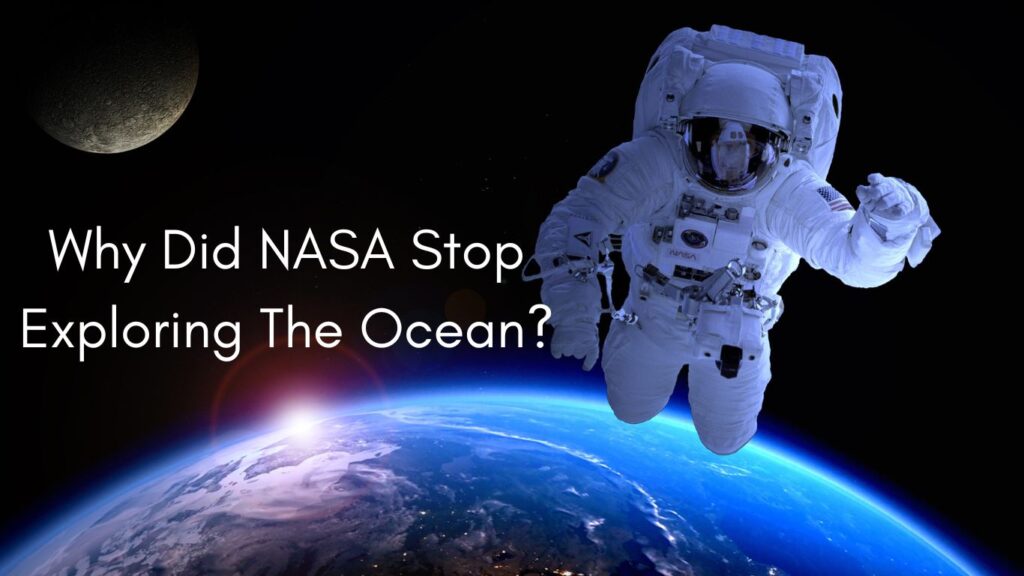The United States’ premier space agency, NASA. Which is primarily focused on space exploration. While NASA has a strong focus on space missions and planetary exploration. It has a limited role in exploring the Earth’s oceans compared to organizations. Like NOAA (National Oceanic and Atmospheric Administration) and other specialized oceanographic institutions. The reason to why did NASA stop exploring the ocean is summarized as follows:

Mission Focus:
In 1958, NASA was founded with a specific mission to explore space. The agency’s primary objective was to carry out research and missions related to space exploration. The space race and the Cold War rivalry with the Soviet Union drove this mission. Resulting in a substantial allocation of resources and personnel to space-related endeavors.
Resource Constraints:
Resource Constraints is another major reason to the question – why did NASA stop exploring the ocean? NASA’s budget, while substantial, is not unlimited. The costs associated with space missions, including launching spacecraft, developing advanced technology, and conducting research in space, are considerable. However, managing these expenses, along with the development of spacecraft like the space shuttle, took a significant share of NASA’s resources. That leaving limited funds and attention for other areas of research, including ocean exploration.
Specialization:
NASA primarily focused its expertise and infrastructure on aeronautics, astronautics, and astrophysics. The challenges and requirements of ocean exploration are distinct from those of space exploration, requiring different skill sets, equipment, and research methods. Then this specialization gap made it more practical for NASA to focus on its core missions in space.
Collaboration:
Recognizing the importance of oceanic research, NASA opted to collaborate with organizations and agencies that specialize in oceanography. By partnering with NOAA and other established oceanographic institutions, NASA could indirectly contribute to ocean science by providing resources like satellites for Earth observation. This collaboration allowed for a more efficient use of resources and expertise in both space and ocean research.
Conclusion:
To summarize why did NASA stop exploring the ocean, NASA’s decision to limit its direct involvement in ocean exploration. It was primarily due to its mission focus on space exploration, resource constraints, specialization in space-related fields. Which is a strategic choice to collaborate with other organizations with a primary focus on oceanography. This approach allowed NASA to allocate its resources more effectively. While still contributing to the study of Earth’s oceans through satellite-based observations and other collaborative efforts.
For more informative articles, please check DailyPostman!
